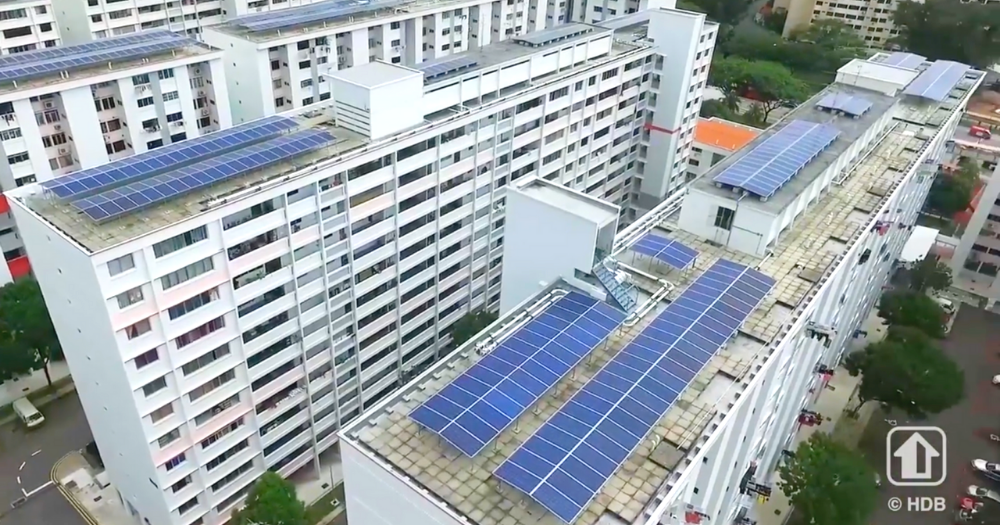The Singapore government has been exploring solar power as a form of green energy in recent years.
But regular Singaporeans can do their part to generate green energy too.
Over 2,000 solar installations
Member of Parliament for Sembawang GRC Lim Wee Kiak posed a question in Parliament to Minister of Trade and Industry Chan Chun Sing on the generation of solar power by domestic households.
These were the questions raised:
- How many domestic households have currently installed solar panels for electricity production
- How much electricity is contributed to the national power grid by these domestic households
- How much carbon emissions have been reduced as a result
In response, Chan revealed in a written reply that there are currently around 950 solar photovoltaic (PV) panels installed in private residential areas.
Comparatively, there are over 1,400 installations on Housing Development Board (HDB) rooftops around the island that are connected to Singapore's power grid.
Chan added that by 2020, HDB aims to have 5,500 HDB blocks fitted with, or identified for solar installation.
Helps to reduce carbon emissions
The electricity generated from all solar installations on HDB rooftops and in private residential areas constitute about 0.16 per cent of the total energy generated in Singapore.
Compared to conventional energy generation from natural gas, these solar panels reduce our carbon emissions by approximately 35 kilotonnes every year.
"This is equivalent to the emissions produced by the electricity consumption of 20,000 4-room HDB flats per year," said Chan.
Households can sell their excess solar energy
To "maximise solar energy adoption" amongst residential consumers, the government has enabled households who generate their own solar power to sell surplus electricity to the grid.
This can be done via SP Group, which acts as the intermediary.
Residents not willing to sell their electricity to the grid can also opt to sell it to one of 13 electricity retailers in Singapore.
Retailers can then re-sell the solar-generated electricity to other consumers in the Open Electricity Market.
Households can soon buy "green credits" to offset carbon emission
In October 2018, SP Group launched a Renewable Energy Certificate (REC) Marketplace.
The digital marketplace, operated using decentralised and secure blockchain technology, sells "green credits" which are tradable certificates which businesses can purchase to help offset their carbon footprint.
RECs support the production of green energy as they represent proof that the energy is generated sustainably.
Currently, RECs can only be purchased or sold by businesses, but Chan said that SP plans to expand the marketplace to include small-scale sellers such as residential consumers so as to encourage solar adoption.
Solar energy is Singapore's "most viable clean energy option", said Chan, because of our land constraints, urban density, and geographic conditions.
"Hence, the Government will actively continue to work with all stakeholders, including households, to maximise solar energy adoption in Singapore," he said.
Related stories
Top photo from Housing Development Board / FB
If you like what you read, follow us on Facebook, Instagram, Twitter and Telegram to get the latest updates.
